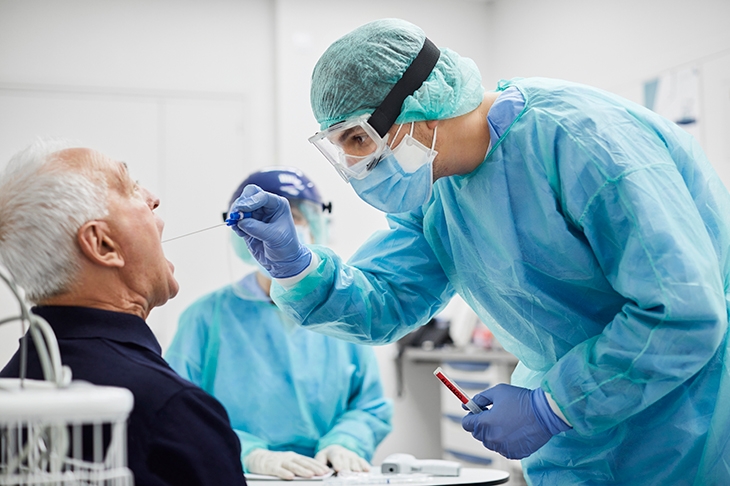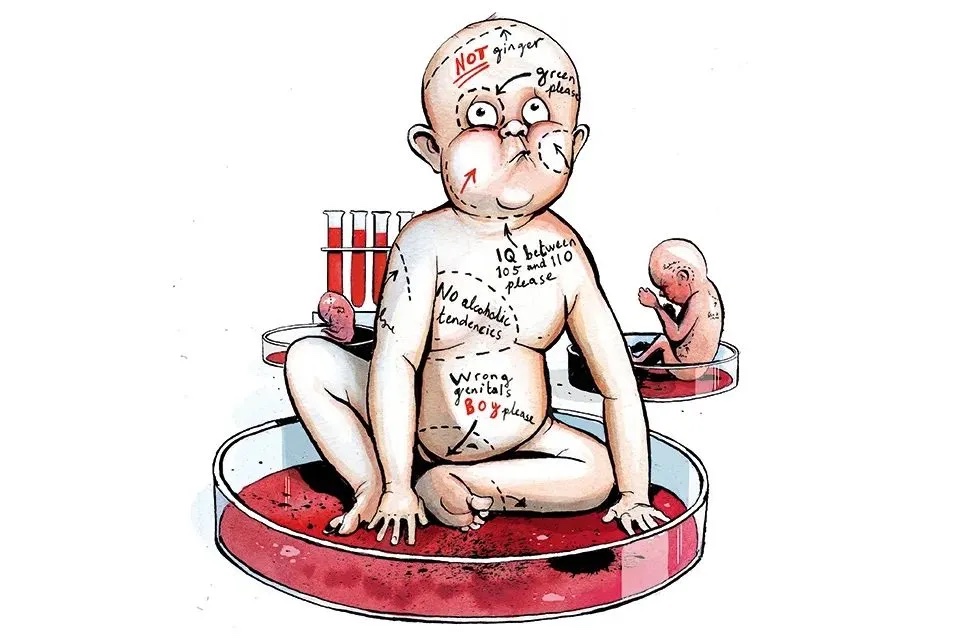The COVID problem lies as much in the delayed action of the virus as in the virus itself. Since symptoms emerge only days after infection, testing often comes too late to reveal how transmission occurs, and often too late to prevent onward transmission, since many people may be most contagious before symptoms appear. This delay makes the targeting of restrictions far more complex — like weather-forecasting in reverse. (For this reason, what we may have to fear most from bioterrorism is not pathogens that are most deadly but those with delayed action.)
If COVID had immediate effects (your hair instantly turned purple) we might have cracked the problem by now. Yet we still don’t know, say, whether the size of the initial dose affects the severity of the disease. What causes super-spreading events — is it the location or the person? Are some people largely insusceptible? One serious theory suggests the internal shape of your nose may have a bearing on the outcome. It all falls within that area of human knowledge where science falls short: you neither have quite enough information, nor can you ethically perform experiments to fill gaps in your knowledge.
This was not so difficult in 1721. Charles Maitland, a Scottish surgeon, received a Royal Licence to conduct an experimental inoculation, or ‘variolation’, on six subjects, who were exposed to a small dose of smallpox. All were inmates of Newgate prison, and were granted a full pardon in the event that they survived. All six did. Later, one was deliberately exposed to smallpox. He was immune.
***
Get a print and digital subscription to The Spectator.
Try a month free, then just $7.99 a month
***
It occurred to me there must be many prisoners today who would welcome a similar offer, and whose release would pose no risk to anyone. Bernie Madoff, say, or those men behind that vault raid in Hatton Garden. None was violent — and the vault’s customers were probably every bit as dodgy as the people who broke in. The main reason for their long sentences is to deter others from similar acts. Now it may be that, living as I do in west Kent, I have excessive sympathy for people who perform large-scale heists, given how much they contribute to our local economy; nonetheless I wondered if you could offer younger such inmates the same deal that was available in 1721.
So in a step rare in British journalism, I decided to share my suggestion with someone who knows what they are talking about: in this case Nir Eyal, professor of bioethics at Rutgers. What he told me was fascinating. Such trials, where you deliberately expose people to infection at various levels, are known as challenge trials. Many scientists believe that it may be impossible to test the full efficacy and safety of any potential vaccine without them. And there is a growing scientific consensus that these trials will accelerate the development of coronavirus vaccines, potentially saving hundreds of thousands of lives. Moreover such trials often require a control group: people exposed to the virus who have been given a placebo, not the trial vaccine. This would reveal what presumably causes protection in those successfully vaccinated, e.g. what antibody he or she has developed that others haven’t. An organization called 1daysooner.org already has about 40,000 volunteers around the world happy to take this risk. In reality, only a hundred or so will be needed for a useful trial.
Two questions, though: if the case for such trials is compelling, might it not have made sense to perform some a few months earlier in the pandemic, to better investigate in individuals the early stages of infection, about which we still know so little? And do we really believe that a few countries haven’t secretly done this already?
This article was originally published in The Spectator’s UK magazine. Subscribe to the US edition here.

























